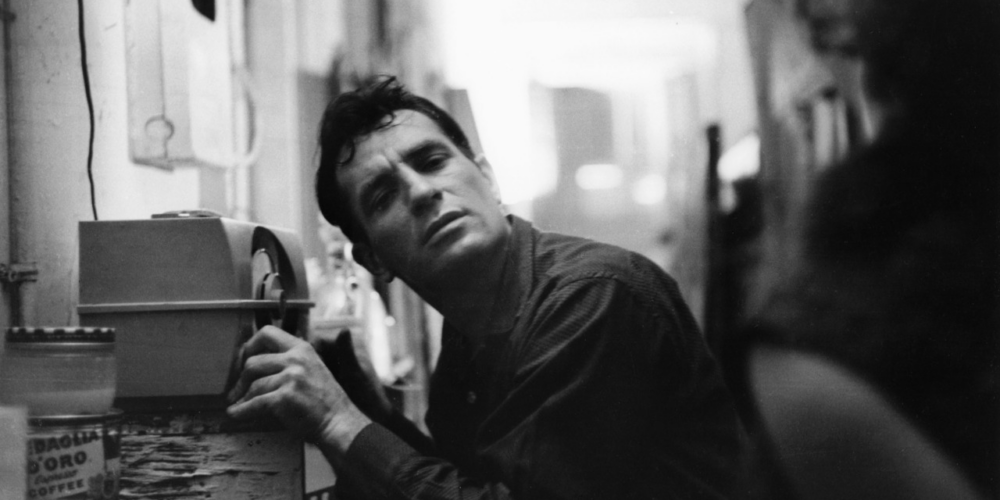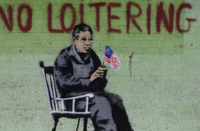Three bilingual tanka (5-7-5-7-7 syllables) by Gabriel Rosenstock
“Kerouac 1” was written in response to a seldom-cited socialist manifesto by Jack Kerouac (1922–1969), novelist and haiku master: “Shorter hours will provide the labourer with a new desire to live, not to be a productive animal, but to have time to be a man, to have time to enjoy the rights of man in the use of his divine intellect, a gift of God that is overlooked by our overlords of the present Industrial Era.”
Kerouac 1
giorraigh an lá dúinn,
a Thiarna, chun go bhfeicfí
ré nua Kerouac:
sciatháin aingil ag péacadh
trínár gcraiceann ainmhíoch!
Lord, shorten these hours
so that a new era dawns
as Kerouac dreamed:
angelic wings come, sprouting,
from this brute animal skin!
Kerouac 2 was written in response to an early story by Kerouac, “The Mystery,” in which he speculates on the nature of ownership. “As I was approaching the rail crossing near the old depot that we have in my home town, I had to lean against a sagging fence (black with soot-years) for fully ten minutes while a mighty locomotive went by freighting ninety-six cars . . . And the thought arose, why didn’t this locomotive, its cars and its cargo belong to him and to his fellow men?” He asks, as a child might ask, “Who covets these great things, so that myself and my fellow men are not heir to their full use?”
Kerouac 2
mistéir is ea é
conas nach bhfuil sciar againn
de gach a bhfuil ann
cén fáth a dtaisceann daoine
níos mó ná a ndóthain mhaith?
it’s a mystery
why we all don’t have a share
in God’s great bounty
why do men squirrel away
more than they’ll need in one life?
Kerouac 3 was sparked off by the following passage from an early short piece by Kerouac, “The Wound of Living”: “I am a New Englander . . . a New Englander removed. Unlike Emerson and Thoreau, my real roots are not set in New England, though I was born there; my roots come from Brittany, and my people were hardy fishermen, like those in Synge and Loti . . .”
Kerouac 3
an smaoiním orthu—
mo shinsir? deacair a rá
conas iad a bhrath
a ngnásanna a shamhlú
a dteanga, a dteacht i dtír
do I think of them—
my ancestors? yes and no
how to conjure them
imagine their existence
how they spoke, all their struggles
■ Gabriel Rosenstock’s bilingual edition of Kerouac’s haiku, Sioc Maidine / Morning Frost (tinyurl.com/52cpnybp), was published by Arlen House, in association with the Imram literature festival.






